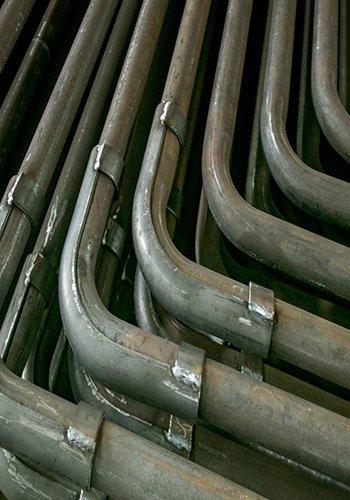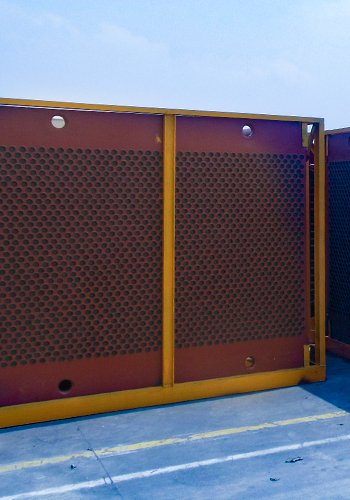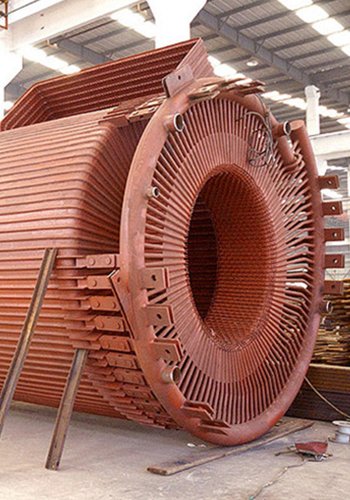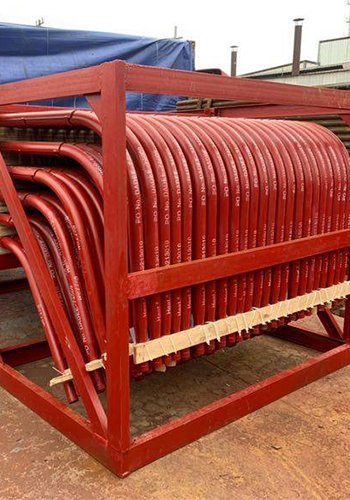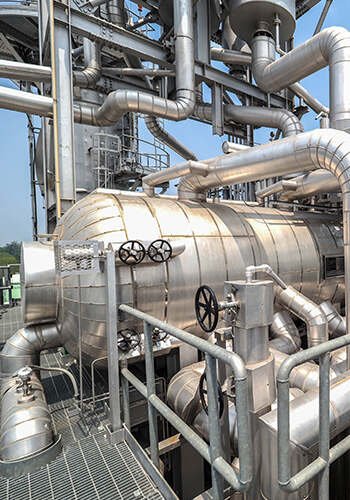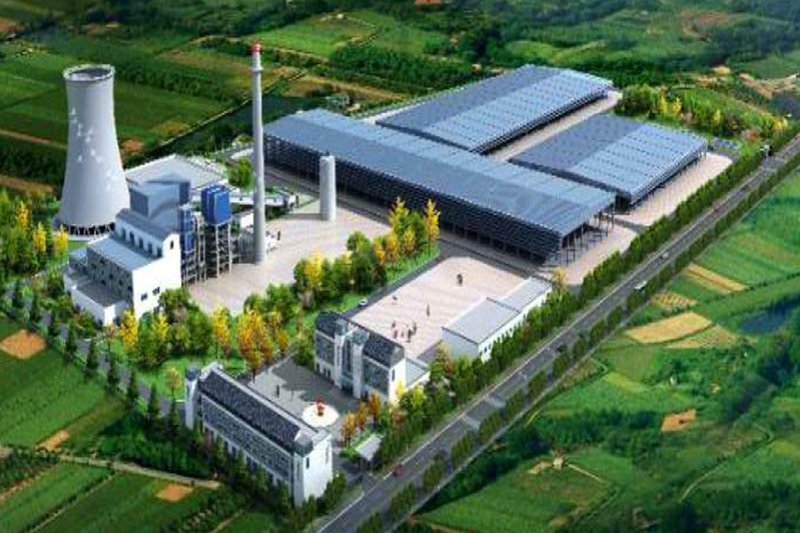In today’s industrial landscape, energy efficiency and sustainability have emerged as critical focal points. To address this challenge, an increasing number of companies are seeking innovative solutions, including the adoption of waste heat boiler technology. Positioned as a key apparatus capable of recovering waste heat from industrial processes and transforming it into useful energy, waste heat boilers are garnering attention and widespread adoption globally. Against this backdrop, manufacturers from various countries are actively contributing to the production and supply chain of waste heat boilers, collectively propelling industries worldwide toward a more sustainable future.
What is a Waste Heat Boiler?
A waste heat boiler is a device that captures and utilizes the heat energy from industrial processes that would otherwise be wasted. It is a type of energy recovery system that helps improve the overall efficiency of industrial operations.
Here’s how a waste heat boiler typically works:
- Capture of Waste Heat: Many industrial processes, such as those in manufacturing or power generation, generate excess heat as a byproduct. This heat is often released into the atmosphere.
- Transfer of Heat to a Fluid: The waste heat boiler captures the excess heat and transfers it to a working fluid (often water or thermal oil) circulating through the boiler.
- Steam Generation: The working fluid absorbs the heat, leading to the generation of steam or hot water. This steam can then be used for various purposes, such as powering a turbine to generate electricity or providing heat for other industrial processes.
- Increased Efficiency: By recovering and utilizing the waste heat, the overall efficiency of the industrial process is improved. This is particularly valuable in industries with high-temperature processes, such as steel manufacturing, cement production, and chemical processing.
Waste heat boilers are commonly used in industries where there are significant heat-generating processes. They play a crucial role in reducing energy consumption and greenhouse gas emissions by making use of thermal energy that would otherwise be discarded. The design and specifications of waste heat boilers depend on the characteristics of the waste heat source and the intended application.
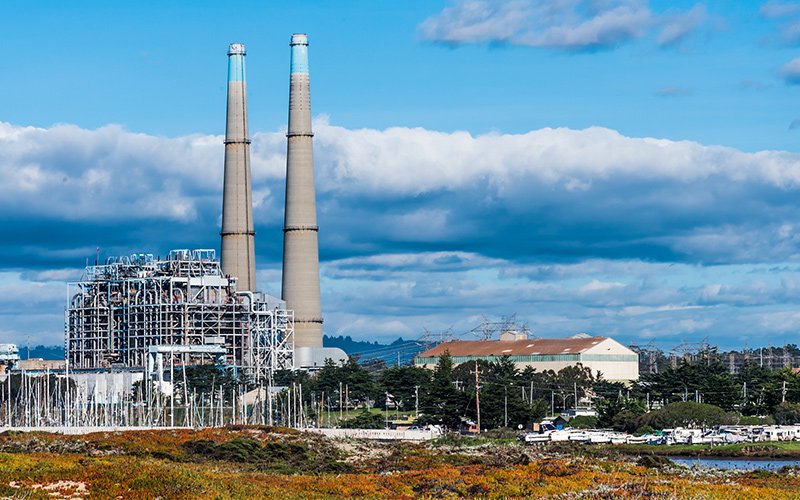
What are the Applications of Waste Heat Boilers?
Waste heat boilers find applications in various industries where there are processes that generate excess heat, and capturing and utilizing that heat can lead to increased overall efficiency. Some common applications of waste heat boilers include:
The specific application of a waste heat boiler depends on the characteristics of the waste heat source and the temperature and pressure requirements of the intended use.
However, some industries that commonly invest in waste heat recovery systems and associated components include:
- Power Generation:
- Power plants, particularly those using combined heat and power (CHP) or cogeneration systems, may invest in waste heat boilers to improve overall efficiency.
- Oil and Gas:
- Refineries and petrochemical plants often utilize waste heat recovery systems to capture and utilize heat from various processes.
- Chemical Industry:
- Companies in the chemical industry, where high-temperature processes are common, may be significant purchasers of waste heat boilers.
- Steel Manufacturing:
- Steel mills may invest in waste heat recovery systems to capture and utilize the high temperatures generated in processes such as blast furnaces.
- Cement Industry:
- Cement plants, which involve energy-intensive processes, may adopt waste heat recovery solutions to improve energy efficiency.
- Glass Manufacturing:
- Industries involved in glass production often use waste heat recovery systems to capture heat from melting processes.
- Paper and Pulp Industry:
- The paper and pulp sector may invest in waste heat recovery to improve the efficiency of various manufacturing processes.
- Biomass and Waste-to-Energy Plants:
- Facilities generating energy from biomass or waste materials may incorporate waste heat recovery systems.
- District Heating Systems:
- Cities or regions implementing district heating systems may invest in waste heat recovery technologies to supply heat to local communities.
- Automotive Industry:
- Some automotive manufacturing plants may utilize waste heat recovery systems to improve energy efficiency in their processes.
The adoption of waste heat recovery systems is often influenced by regulatory requirements, energy prices, and a company’s commitment to sustainability. It’s important to note that the landscape may have evolved since my last update, and for the most current information, you may want to refer to industry reports, market analyses, or consult with relevant industry experts and associations.
What are the Advantages of Using Waste Heat Boilers?
Using waste heat boilers in industrial processes offers several advantages, contributing to increased energy efficiency and sustainability. Here are some key advantages:
- Energy Efficiency Improvement:
- The primary advantage of waste heat boilers is the improvement of overall energy efficiency. By capturing and utilizing excess heat from industrial processes, waste heat boilers help extract additional useful energy that would otherwise be wasted.
- Reduced Environmental Impact:
- Recovering waste heat reduces the need for additional fuel consumption, leading to lower greenhouse gas emissions and a smaller environmental footprint. This aligns with sustainability goals and regulatory requirements aimed at reducing industrial emissions.
- Cost Savings:
- By reusing waste heat, industries can reduce their reliance on external energy sources, leading to cost savings. This is particularly relevant in energy-intensive industries where energy costs represent a significant portion of overall operating expenses.
- Increased Process Efficiency:
- Waste heat recovery contributes to the efficiency of specific industrial processes. For example, in combined heat and power (CHP) systems, waste heat boilers can enhance the overall efficiency of electricity generation and heat production.
- Enhanced Equipment Performance:
- Waste heat boilers can improve the performance of certain equipment, such as gas turbines and engines, by reducing the temperature of the exhaust gases. This can lead to extended equipment lifespan and increased reliability.
- Flexibility in Application:
- Waste heat boilers are versatile and can be applied to various industries and processes. Their adaptability makes them suitable for capturing and utilizing waste heat in different temperature ranges and from diverse sources.
- Cogeneration Opportunities:
- Waste heat boilers can be integrated into cogeneration systems, where both electricity and heat are produced simultaneously. This integrated approach maximizes the utilization of energy resources.
- Compliance with Regulations:
- In many regions, there are regulations and incentives aimed at promoting energy efficiency and reducing emissions. Using waste heat boilers allows industries to comply with these regulations and take advantage of incentives.
- Enhanced Sustainability Profile:
- The use of waste heat boilers aligns with sustainability goals, showcasing a commitment to responsible resource utilization and environmental stewardship. This can be important for companies seeking to improve their sustainability profiles.
- Localized Heating Solutions:
- Waste heat boilers can provide localized heating solutions for industrial processes or nearby communities through district heating systems. This contributes to the efficient use of heat resources and reduces the need for additional heating infrastructure.
While waste heat boilers offer numerous advantages, their design and implementation should consider the specific characteristics of the waste heat source and the intended application to ensure optimal performance.
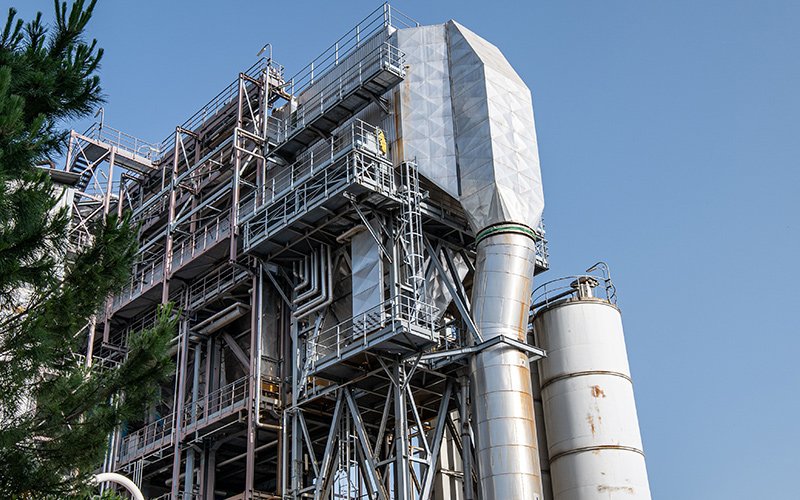
Main Procurement Countries and Regions
The global sourcing of waste heat boilers and related components can involve manufacturers and suppliers from various countries and regions. The selection of sourcing locations may depend on factors such as cost, expertise, quality standards, and proximity to end-users. As of my last knowledge update in January 2022, the sourcing landscape can change, and it’s advisable to check the most recent information for accurate insights.
Several countries and regions are known for their expertise in industrial equipment manufacturing, including waste heat boilers. Some of the countries that have a significant presence in the global sourcing of industrial boilers, including waste heat boilers, include:
- China:
- China has a large and well-established manufacturing industry, and many companies in China produce industrial boilers, including waste heat boilers. China is a major player in the global market for industrial equipment.
- Germany:
- Germany is known for its engineering and manufacturing expertise. German companies are often recognized for producing high-quality and technologically advanced industrial equipment, including waste heat recovery systems.
- United States:
- The United States has a strong industrial sector, and American companies are involved in the production of various industrial equipment, including waste heat boilers. The selection of suppliers may vary based on project requirements.
- India:
- India has a growing industrial base, and Indian manufacturers may be involved in producing waste heat recovery systems. India is often considered a source for cost-effective engineering solutions.
- Japan:
- Japanese companies are known for their advanced technology and precision engineering. Some Japanese manufacturers may be involved in the production of waste heat boilers and related components.
- South Korea:
- South Korea has a robust industrial sector, and companies from South Korea may contribute to the global supply chain for waste heat recovery systems.
- Italy:
- Italy is known for its engineering expertise, and Italian manufacturers may be involved in producing high-quality industrial equipment, including components for waste heat boilers.
- United Kingdom:
- The UK has companies with expertise in engineering and industrial equipment manufacturing. Some British companies may be involved in the production of waste heat recovery systems.
- Netherlands:
- The Netherlands has a strong presence in the global industrial equipment market. Dutch companies may contribute to the supply chain for waste heat boilers.
- Turkey:
- Turkey is known for its manufacturing capabilities, and Turkish companies may be involved in the production of industrial boilers, including waste heat recovery systems.
It’s important to note that the sourcing landscape can change, and new players may emerge. Additionally, the specific sourcing strategy can vary based on project requirements, cost considerations, and regional expertise. For the most up-to-date information, consulting industry reports, trade publications, and engaging with relevant industry experts is recommended.
DHB Boiler
Discover The Superior Quality And Cutting-Edge Technology Of DHB Boilers. Explore Our Range Of Biomass Boilers, Waste Heat Boilers, And More. Take Your Industrial Operations To New Heights With DHB Boiler.
